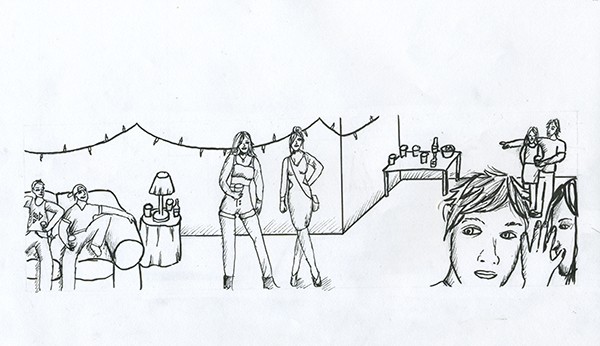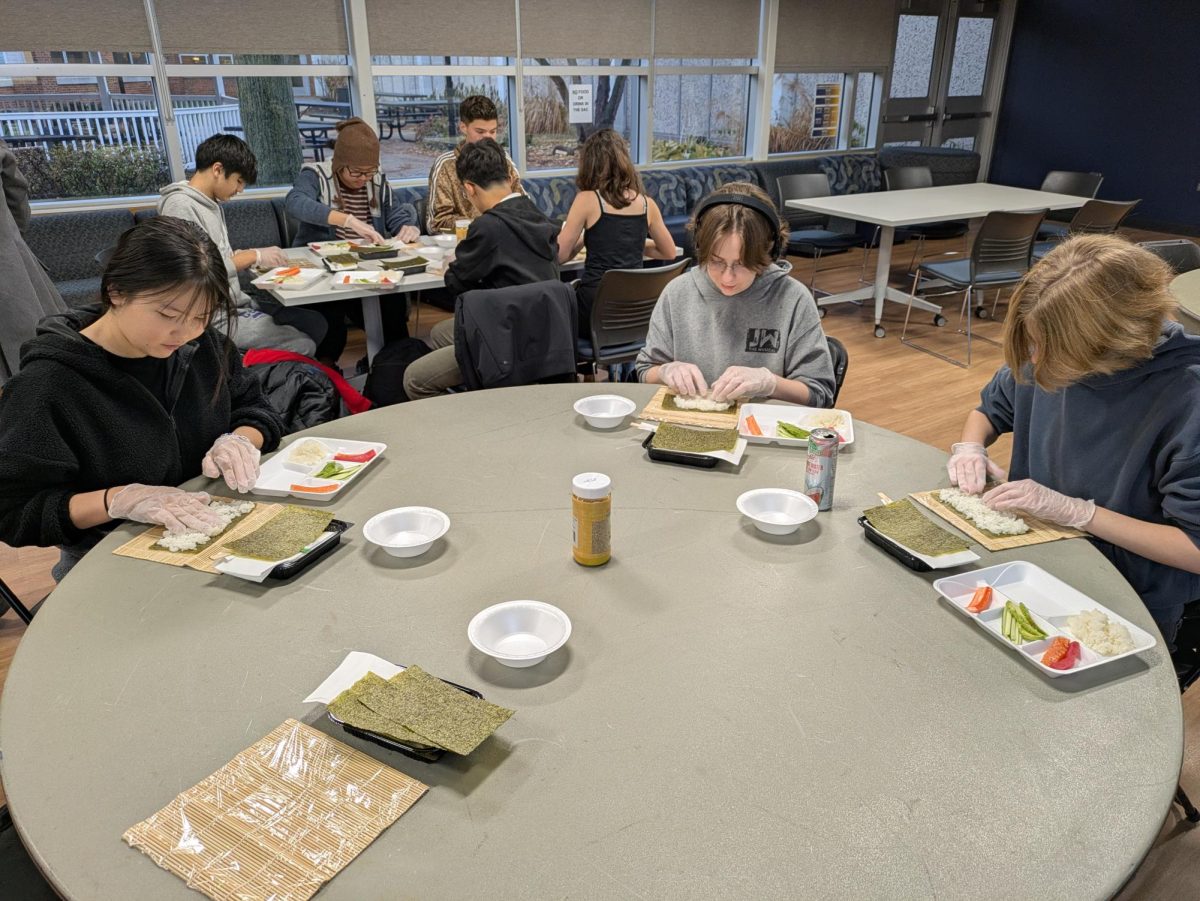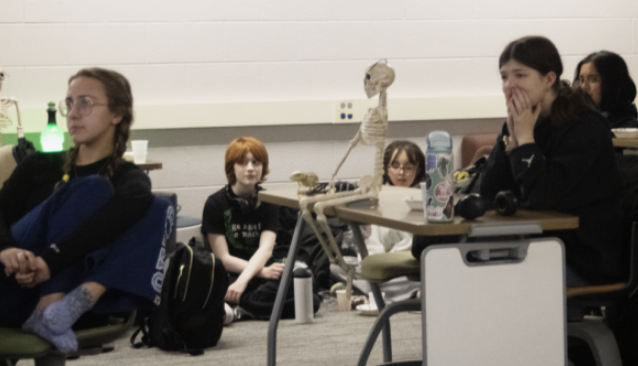On the evening of Oct. 30, 2010, 18 year-old Jessica Stevens* was a freshman attending college in Milwaukee when she was allegedly raped by four members of her school’s basketball team, one even being her good friend. Although she pressed legal charges, the case was dropped and the only punishment sentenced to the perpetrators was writing a paper.
After being invited by a friend on the basketball team named Sam* to what she thought was a house party, Stevens and four girlfriends went to Sam’s apartment. However, there were only seven other people at the apartment — six basketball players and one college recruit. Once she arrived, Sam kept asking Stevens to speak with him in another room.
After denying him a few times, Stevens finally said yes, and followed Sam to a room where he restrained and sexually assaulted her. Once Sam was finished with her, he left the apartment and Stevens was taken into another room by three other players. After struggling to find a key, one of Stevens’s girlfriends finally broke into the room and found Stevens slumped in a chair with her pants undone and one of the boys standing over her.
Years later, Stevens continues to feel the emotional effects of such a traumatic event. Refusing to be satisfied with the outcome of her own situation, Stevens has chosen to speak out against sexual violence and the “rape culture” in which our society lives.
“Rape culture” is a term that was coined by feminists in the United States in the 1970s, according to Women Against Violence Against Women. The phrase was designed to show the ways in which society blamed victims of sexual assault and normalized male sexual violence.
Health clinics like Angles (formerly known as Links) in Northfield, IL provide resources and outlets that allow the victims of sexual assault to speak up and receive help. Despite this increase in resources and education about “rape culture” since the term’s inception, Angles counselor Janice Liten feels sexual assault cases are just as prevalent now.
“I think there is definitely more awareness and conversation now, but I am also seeing so many more [cases of] sexual assault at the clinic,” Liten said. “I know that there is more of it; I have been here a long time.”
One of the most debated segments of the “rape culture” umbrella is the relative prevalence of rape and other sexual assault violence on college campuses. With a decrease in parental supervision and an increase in the presence of illegal substances and unfamiliar situations, many college students and campuses across the United States have been experiencing the effects of a “rape culture” first hand. However, the debate has also divided people along the lines of who is responsible for the rape, as well as how colleges and universities should punish the students responsible for sexual violence and rape.
ABC News reported that Florida State University’s Pi Kappa Alpha fraternity is currently under investigation following a reported sexual battery case on Oct. 10 at one of their annual events. Leah Francis, a student of Stanford’s class of 2014, drew attention to Stanford’s sexual assault policies after claiming Stanford did little to punish a fellow student who sexually assaulted her in January, according to The Stanford Daily.
In a similar case, The Huffington Post reports that three basketball players for the University of Oregon were allowed to play in the NCAA March Madness tournament despite being accused of participating in a gang rape that took place the night of March 9.
David Hartman, South social worker, recognized college as a vulnerable place for students, especially when it comes to rape and sexual abuse. Hartman said the combination of drugs, the prevalence of casual hookups and the freedom from parental supervision all come together and spell trouble for many college students.
“All those things come together in a ‘perfect storm’ to create situations where people take advantage of the situations and other people,” Hartman said.
Unfortunately for the people involved in these situations, the blame is often misplaced on the victim rather than the perpetrator, Liten believes. “I think that responsibility has always fallen on the [victim],” Liten said. “People tell [victims] ‘Don’t walk alone at night’ and ‘Don’t get too drunk,’ and yes those are important things for your safety, but it [does not make it] your fault.”
Liten explains that often times victims are stereotyped as being “slutty” or as “craving attention,” justifying why they have fallen victim to sexual assault; however, Liten feels there’s a strong distinction between the two.
“Maybe you wanted some attention, but you didn’t ask to be raped,” Liten said. “You can look at so many [victims], who did not want to come forth about [their sexual abuse] because they knew they would be looked at like, ‘What part did you play in this? Were you drunk? Did you lead them on? Did you start something then break it off?’ So it has always come down to responsibility and blaming, and that definitely needs to change.”
Unfortunately, Stevens can relate to the feeling of being blamed for her sexual assault. According to Stevens, the comments people were making made her question her role in her rape.
“I really struggled to not blame myself,” Stevens said. “I am a pretty strong person, but it is really tough to not let some of the things people say get to you. There is this online discussion forum about university. When the media got wind of my police report, the forum became filled with discussions on my decision to report. People would post terrible things about me, and I would sit and read every single one of those comments. I began to think that maybe there was something I should have done differently.”
In addition to recognizing that they are not at fault, Liten stresses the importance that both male and female sexual abuse victims take advantage of clinics like Angles in order to get tested, treated and receive counseling to properly heal. According to Liten, the resources available at Angles for men are not commonly taken advantage of. She attributes this fact to the lack of conversation and acceptance of male rape cases.
“For women, most of them will probably know another woman who has been assaulted in some way, but a guy may not know of another guy who has been assaulted,” Liten said. “So it may lead to thoughts like, ‘Was I not tough enough?’ or ‘What could I have done?’ So I think there is not as much acceptance of [male sexual abuse] because of this lack of awareness.”
According to Liten, the most important thing to be done in order to reverse the “rape culture” is to educate the public about rape and sexual abuse. Awareness on the topic, Liten said, is what can help prevent more cases from occurring.
“The biggest thing is to keep talking and making people aware and having conversations about [rape],” Liten said. “[Rape] is not a women’s problem; it is a society’s problem. It’s everybody’s problem.”
In addition to starting conversations about rape and sexual abuse, Stevens says society as a whole needs to stop blaming victims and start working to help them, not hurt them.
“We need to stop blaming and shaming victims,” Stevens said. “No one asks to be raped. The backlash and revictimization that results from being raped can be so horrific, I don’t know how anyone would ask to be raped or lie about being raped.”
The conversations inspired by Stevens and other victims across the country have gotten the attention of state and federal officials. California recently adopted the “Yes Means Yes” law that requires “an affirmative, unambiguous and conscious decision” from both parties before engaging in sexual activity, according to www.usatoday.com. According to the California state Senate’s sponsor, the bill was created with the targeted goal of changing how campus officials handle sexual assault allegations.
Similarly, President Obama launched a campaign titled, “It’s On Us” this past April. Among other things, the campaign aims to create an environment in which sexual assault is unacceptable and survivors are supported, according to www.itsonus.org.
Part of raising awareness is knowing the locations of the centers as well as the knowledge that they exist within the community. Three local centers dedicated to counseling and caring for sexual abuse victims include, Angles in Northfield, IL; Northwest Center Against Sexual Assault in Evanston, IL; and Zacharias Sexual Abuse Center in Gurnee, IL, all of which also have services offered specifically for male victims.
*names have been changed








